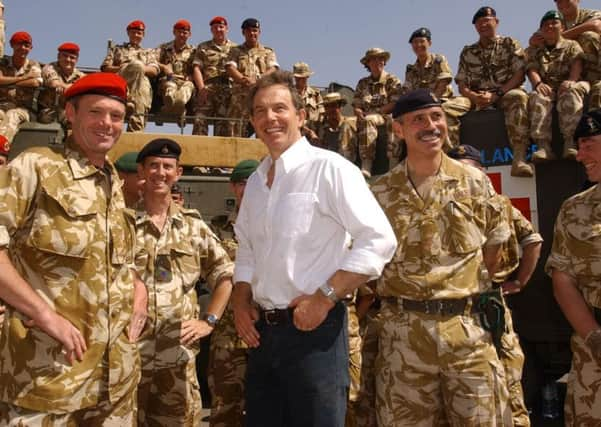YP Comment: Chilcot must deliver answers


Sir John Chilcot’s report into the Iraq War, which is published today, bears a burden of expectation that is all its own making. Seven years have been spent in its preparation, 129 witnesses have been called to give evidence and its total cost stands at a whopping £9m.
Given the scale of the inquiry, the public have a right to expect no stone to be left unturned in its pursuit of much-needed truth and clarity in relation to one of the darkest and most contentious chapters in modern British history.
Advertisement
Hide AdAdvertisement
Hide AdAs details of the report begin to emerge, the principal focus will be on its analysis of the flawed decision-making which led to the 2003 invasion of Iraq and the question of whether Tony Blair and his government knowingly engaged in subterfuge to press the case for going to war.
Key to this is Mr Blair’s claim that Iraqi president Saddam Hussein possessed the ability to launch weapons of mass destruction in 45 minutes. It was this which was at the heart of his insistence that the conflict was triggered by self-defence rather than a calculated push for regime change years in the planning.
When the weapons claim was quickly shown to have no basis in fact, it suggested there had been a serious intelligence failure. The Chilcot report must now give us conclusive answers as to the extent of this failure and who was to blame – not only for the gathering of the erroneous information but in the way it was presented to the public.
Mr Blair’s role will rightly bear the most scrutiny, alongside that of his senior advisers and key ministers. However, what must be remembered is that 179 British servicemen and women died in the conflict, 16 of them from Yorkshire. The suffering of their families should not be lost in the political maelstrom.
Advertisement
Hide AdAdvertisement
Hide AdIt is they, more than anyone, who deserve the answers for which they have waited so long.
A strike too far
It is testament to the commitment of our schools that so many managed to stay open during yesterday’s strike by members of the National Union of Teachers.
Nevertheless, the walk out still affected the education of millions of children, as well as causing disruption to parents and incurring them extra costs.
For every right-thinking parent, their child’s education is of primary importance. As such, good teachers who are dedicated to doing their best for their pupils can count on their full support.
Advertisement
Hide AdAdvertisement
Hide AdIt is open to question, however, whether those teachers who walked out yesterday in a long-running dispute over school funding, pay and conditions are acting in the best interests of the nation’s children or are truly representative of their profession.
Despite the NUT’s assertion that teachers were “solidly” behind the strike, this latest bout of industrial action does not appear to have a democratic mandate. Just one in four NUT members took part in the ballot – less than 10 per cent of the total teacher workforce.
So far as their complaints over pay are concerned, on average a teacher earns £37,400 a year – a salary many who work just as hard would be only too happy to receive.
It is also ironic that parents face stiff financial penalties for taking their children out of lessons and yet some teachers are prepared to deprive them of a day’s education in order to hold the Government to ransom.
Advertisement
Hide AdAdvertisement
Hide AdCould it perhaps be time for newly qualified teachers to commit to a similar pledge to refrain from taking strike action in the same way as the nation’s police officers?
Down the pan?
Councillors in Scarborough are not alone in seeking to scale back its funding of public toilets in the wake of budget cuts – a similar picture is emerging across the country.
The concern is that in looking to town and parish councils to take over the maintenance of many of its conveniences, a number of them will close because the individual authorities are also without sufficient funds to ensure their survival.
Such a step would be disastrous for tourism along Yorkshire’s coastline and resorts which are so dependent on people coming in and spending their pounds – as well as a penny.
Advertisement
Hide AdAdvertisement
Hide AdOne option might be to explore a solution along the lines of that being pursued north of the border. Councils there are offering payments to shops and other businesses to allow visitors to use their facilities.
After all, inconveniencing tourists could prove far more costly.